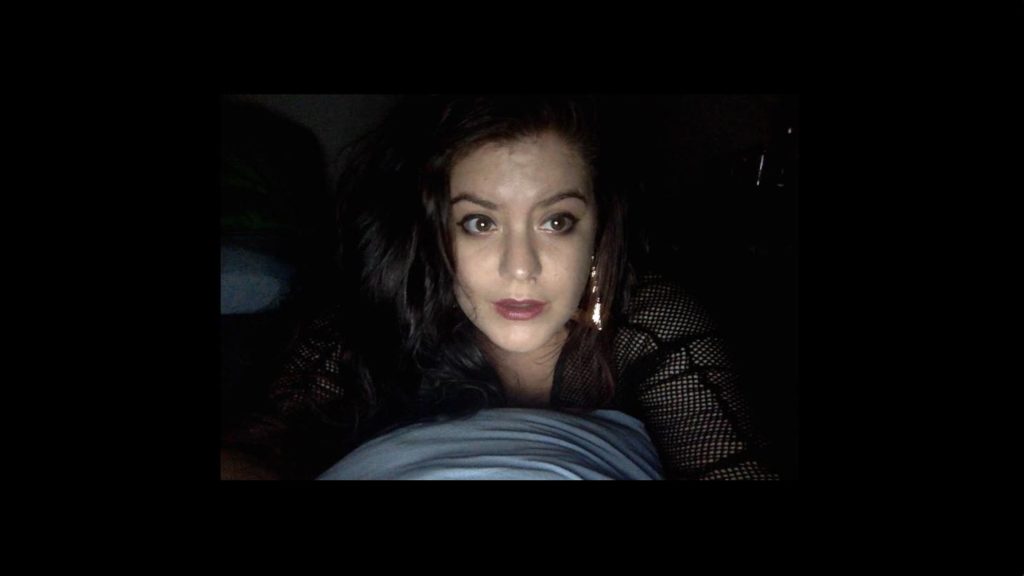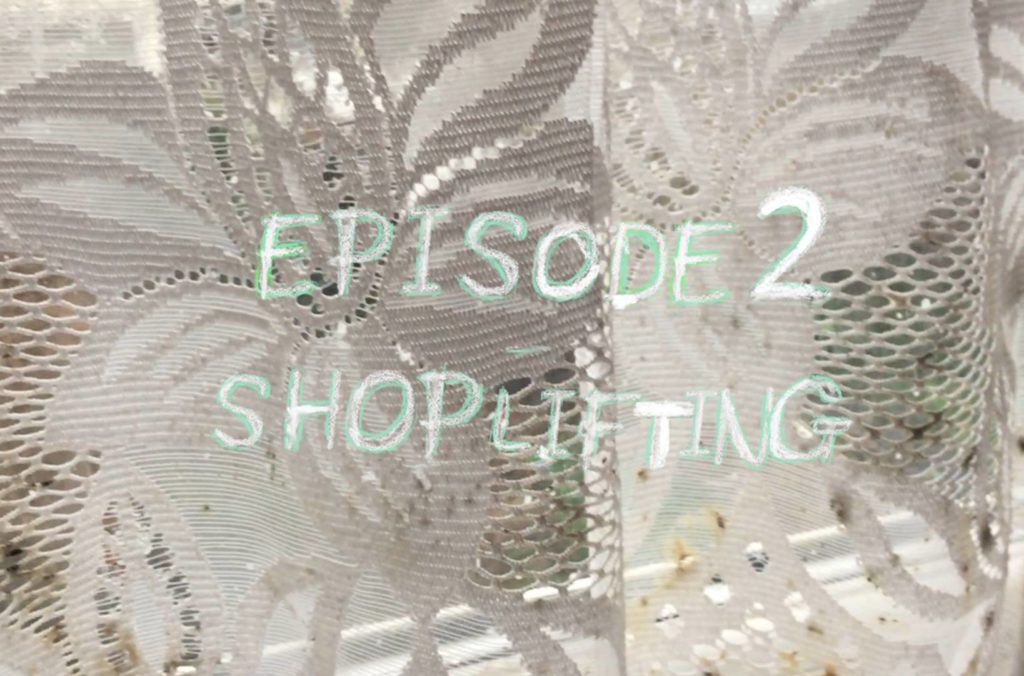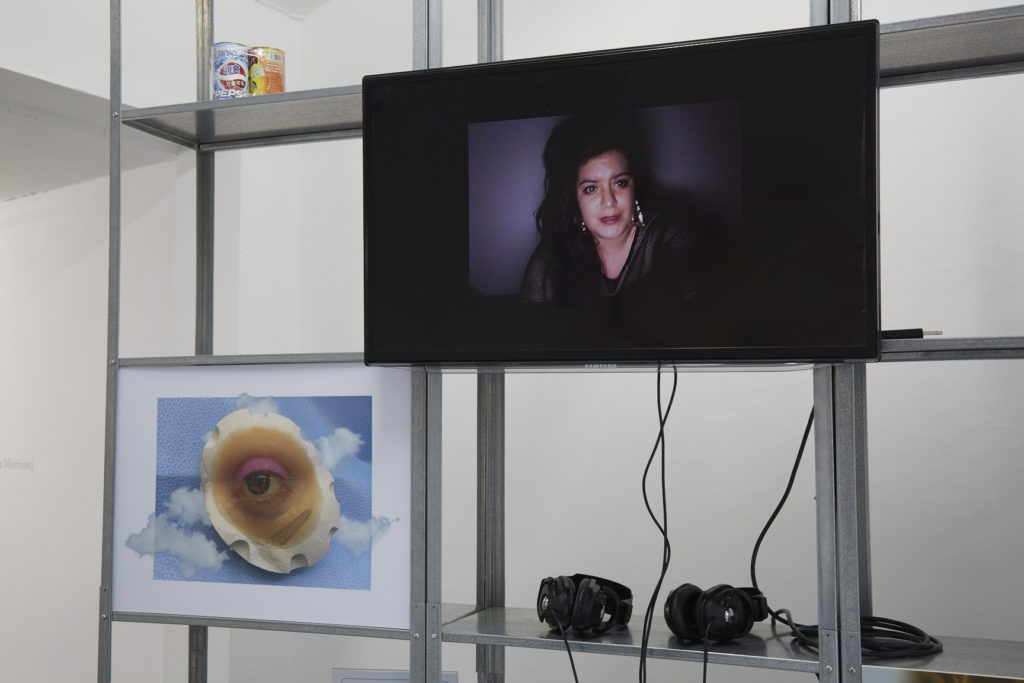“Why are you telling stories, what makes these stories funny?” asks Emily Pope, referring to the idea of storytelling as a tool for confronting how humour operates in her artistic practice. In a climate of increasingly ambivalent socio-political conditions for artists, the trajectory of their practice reflects broader issues of precarious labour and the figure of the creative practitioner within that.

This is apparent in the first two episodes of the Pope’s Sitcom Series launched in 2016 and screening at the 12ø Collective-presented NAWKI screening event at East Bristol Contemporary on July 13. It’s a six-part video series that meditates on film’s capacity to perform a reflexive diary in order to expose our personal and collective relationships to humour, capital and society. In a collection of iPhone recordings of friends, along with personal reflections on her everyday experience and relationship to government austerity, Pope provides insight into the effects of external conditions on an interpersonal and collective psyche. It’s characters capitalise on being Left-leaning with little money through their semi-illegal lifestyles; the last wave of working class people to avoid slipping through the net (remember EMA) who are fucking the system, but also enjoying being fucked by the system.
Pope writes via email, then Google Doc that the use of the diary as a mode of expression is a “device to consider the currency or political impact of a ‘feminist monologue’ in contemporary media.” That is to say, it allows a space where the darker language of the persona purposefully exposes a coherent reality of how public spending cuts affect us emotionally, especially as women. “The diary is a performance,” she explains.
The London-based artist’s practice also raises questions on how humour reflects issues of identity. Pope says the Sitcom Series is “a black comedy about the notion of being a funny woman… which is a character trope — someone who overshares in order to create a story.” Pope’s practice derives from this exact premise, by researching sitcoms written by women.

** Is openness and storytelling a way of relating?
Emily Pope: The films use openness as a defence. I find the gallery sector and even the project space system to be difficult — everyone thinks they are famous and they haven’t got any money. I have no apologies or excuses for the audience these spaces engage with, so I feel like they can just have everything. That’s what I’m doing in this film by outlining what the failures are as part of the script, and what the intentions were in the first place.
** Do you think this disillusion with people’s socio-economic positions make identity politics jaded?
EP: I think identity politics have become very un-real identity politics — very ‘post-truth’— particularly with artists who are using exaggerated traumatised identities in order to propagate a practice. I would like to (perhaps cynically) acknowledge a millennial tendency to lie with my own relationship to this.
** But it’s also a curiosity, while having the privileged position to be.
EP: In terms of curiosity, there are many ways that millennials steal, but are you really going to get arrested after you scan an avocado as an onion in Tesco? No. Have you ever had a conversation with the police where you were not the victim? No. The Shoplifting episode had multiple meanings — shoplifting other people’s stories, actual shoplifting, and bootlegging song lyrics.

** The Court Summons episode has an extra dimension to it because the government has intervened, and subsequently you have then had contact with the system. Whereas shoplifting is often quite romanticised, and people get addicted to a level of impulsion.
EP: In The Court Summons I was being earnest because I was angry — I received a court summons for not paying my council tax and was removed from a payment scheme, only to discover that I could go straight back on the payment scheme, would not be taken to court, and all that would be affected was my credit rating. This is a divisive way of making sure people who are already broke stay off the property ladder. I decided to make a film about it, which is actually quite a boring subject.
** So that whole system is an exercise in control — capitalism makes people into disciplined subjects. Do you have an intention of how the viewer perceives these issues?
EP: The films highlight control by documenting the ways in which I support ‘the system’ whilst simultaneously contradicting it — being complicit in my own parody of self. I’m thinking about the ways in which we are dealing with the current social and economic situation in the UK. I think if you can elicit a response from somebody, or create a situation where someone looks at where a collective laugh occurs, they might consider why something is funny, and if it is funny.
I would like these films to operate like me having a conversation in the pub, there is a lightness to them which embraces the importance of camaraderie. The sitcom series also raises the question of using anecdotes as a vessel to talk about other things. For instance, when I talk about a bird weeing on my face, it is unclear whether this actually happened on the way to work, or if this is an allegory. **













